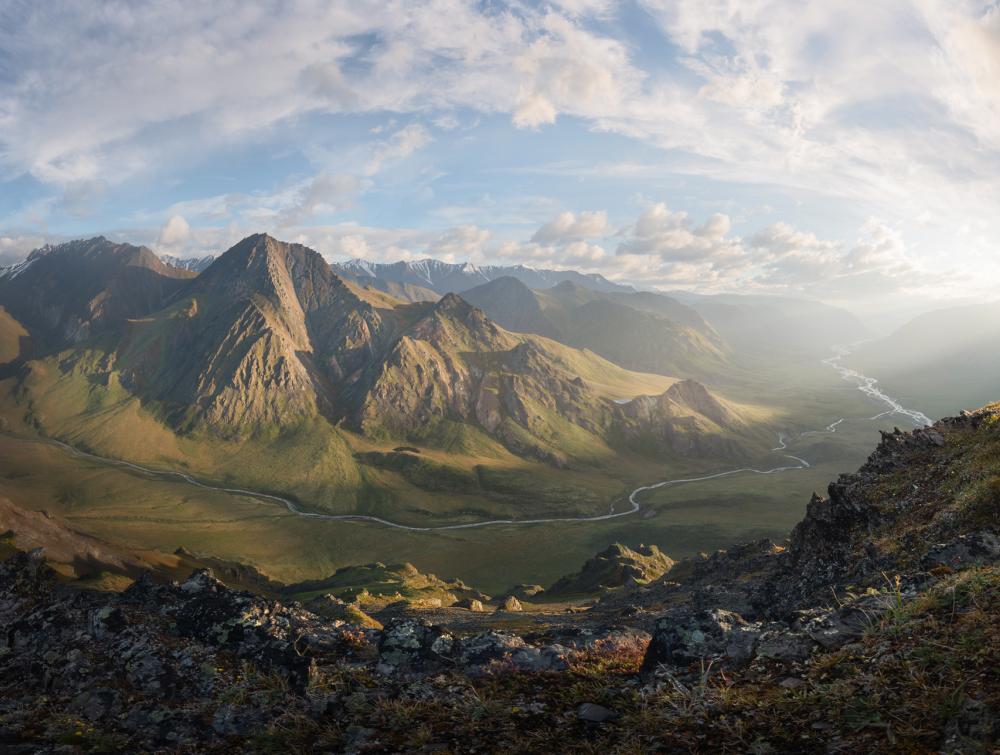Over 250 Organizations Across 50 States Demand Oil Companies Not Drill in the Arctic Refuge

Arctic National Wildlife Refuge, Alaska
Mason Cummings, TWS
Indigenous, conservation and faith organizations target four possible oil lease bidders: Chevron, ConocoPhillips, ExxonMobil and Hilcorp
ANCHORAGE, AK—In response to the federal government’s recent release of a Record of Decision that paves the way for a lease sale in the Arctic National Wildlife Refuge, 259 Indigenous, conservation and faith organizations today sent a letter calling on Chevron, ConocoPhillips, ExxonMobil and Hilcorp to not pursue fossil fuel development in the fragile landscape of the refuge’s coastal plain. The letter, signed by organizations from all 50 states and representing more than 27 million members, targets oil and gas companies who would potentially bid in the sale and asks them to not pursue fossil fuel development in the refuge; to withhold from bidding on any lease parcels that are offered in response to the 2017 Tax Cuts and Jobs Act; and to make public statements of opposition to oil and gas development in the Arctic Refuge.
The letter states that “Drilling for oil on the fragile coastal plain will also exacerbate the climate and ecological crisis in an area that is already ground-zero for the climate crisis. Chronic spills of oil and other toxic substances in addition to air, water and noise pollution in the fragile tundra would forever scar this now unsullied land while disrupting wildlife like caribou, polar bear and countless migratory birds.”
Bernadette Demientieff, executive director of the Gwich’in Steering Committee, said, “The push to drill in the Arctic Refuge is a clear violation of Indigenous communities’ basic human rights. The pursuit of industrial development by any company would be in direct conflict with our continued health and spiritual livelihood. Any company that bids on leases or expresses interest in destroying ‘Iizhik Gwats’an Gwandaii Goodlit’ or ‘The Sacred Place Where Life Begins’ for oil will face major public backlash and lasting damage to their reputation. It’s not worth the risk to their finances and reputation or to our shared future.”
Karlin Itchoak, Alaska state director for The Wilderness Society, said, “The Arctic is warming at twice the rate of the rest of the world. Producing and burning Arctic Refuge oil would accelerate climate change not just for Arctic communities, but for our planet. Future generations will be left to deal with the disastrous impacts. The environmental, climate, human and economic risks of drilling in the refuge will certainly leave a stain on a company’s reputation.”
"The recent record of decision approving oil and gas leasing on the Arctic Refuge shows the administration's complete disregard for the millennia-strong Gwich'in & Iñupiat ways of life that depend on the health of the refuge's coastal plain,” said Jody Potts, regional director of Native Movement. “In the Arctic, our peoples are being impacted right now by a climate crisis built on oil and gas development, we cannot afford more. The adverse impacts of oil development in this sacred and critical caribou calving grounds will be heavily felt by Gwich'in and Iñupiat villages. As a Gwich’in person, I know my family's food security, culture, spirituality and ways of life are at stake. I know the Gwich'in people will not compromise and we will defend our way of life for future generations until this sacred land is protected.”
Tonya Garnett, Special Projects Coordinator for the Native Village of Venetie Tribal Government stated, “The coastal plain is one of the most important natural, cultural and subsistence resources to the Neets’ąįį Gwich’in of Arctic Village and Venetie and to the Gwich’in people as a whole. Our cultural identity as caribou people is intertwined with the Porcupine Caribou Herd’s calving areas in the coastal plain. That is why our Tribes filed suit against Trump’s push to drill the coastal plain. As tribal governments, we will defend our Neets’ąįį way of life at all costs.”
Five of the six largest U.S. banks recently announced that they will not finance oil and gas development in the Arctic. As the global community works to pivot away from fossil fuels in the face of climate change, the pursuit of oil and gas in remote corners of the globe will continue to face strong social and political opposition.
The letter to oil companies goes on to state, “At a time when demand for oil and gas is likely in permanent decline, drilling in the Arctic Refuge doesn’t make fiscal sense. Arctic lease sales are likely to be challenged legally, resulting in additional costs for the beleaguered industry.”
The current administration has stated that it hopes to execute a lease sale by the end of the year. Advocates have stated they plan to turn up the pressure on Chevron, ConocoPhillips, ExxonMobil and Hilcorp if those companies choose to pursue leases.
###
More Information:
The Record of Decision comes after the passage of the 2017 Tax Act which included a last minute provision requiring drilling in the Arctic National Wildlife Refuge in northeastern Alaska.
Protection of the Refuge had been supported by Democrats and Republicans since 1980, and over 70 percent of voters in the United States oppose drilling in the Arctic Refuge.
Alaska Native communities like the Gwich’in and Iñupiat depend on the Arctic Refuge and its resources to sustain their communities, culture and way of life. Iñupiat communities rely on Arctic fisheries for their diet, which would be impacted by increased marine traffic to build oil infrastructure, while the coastal plain of the Arctic Refuge has sustained the Gwich’in people for millennia. The Gwich’in are physically and spiritually linked to the Porcupine Caribou Herd, which give birth to their young in the refuge. This month, the United Nations called for an investigation into the United States regarding how proposed development in the Arctic Refuge violates the Gwich’in people’s human rights.
Contacts:
Tim Woody, The Wilderness Society, 907-223-2443, tim_woody@tws.org
Bernadette Demientieff, Gwich’in Steering Committee, 907-371-8028, bernadette@gwichinsteering.com
Jody Potts, Native Movement, 907-960-2002, jody@nativemovement.org
